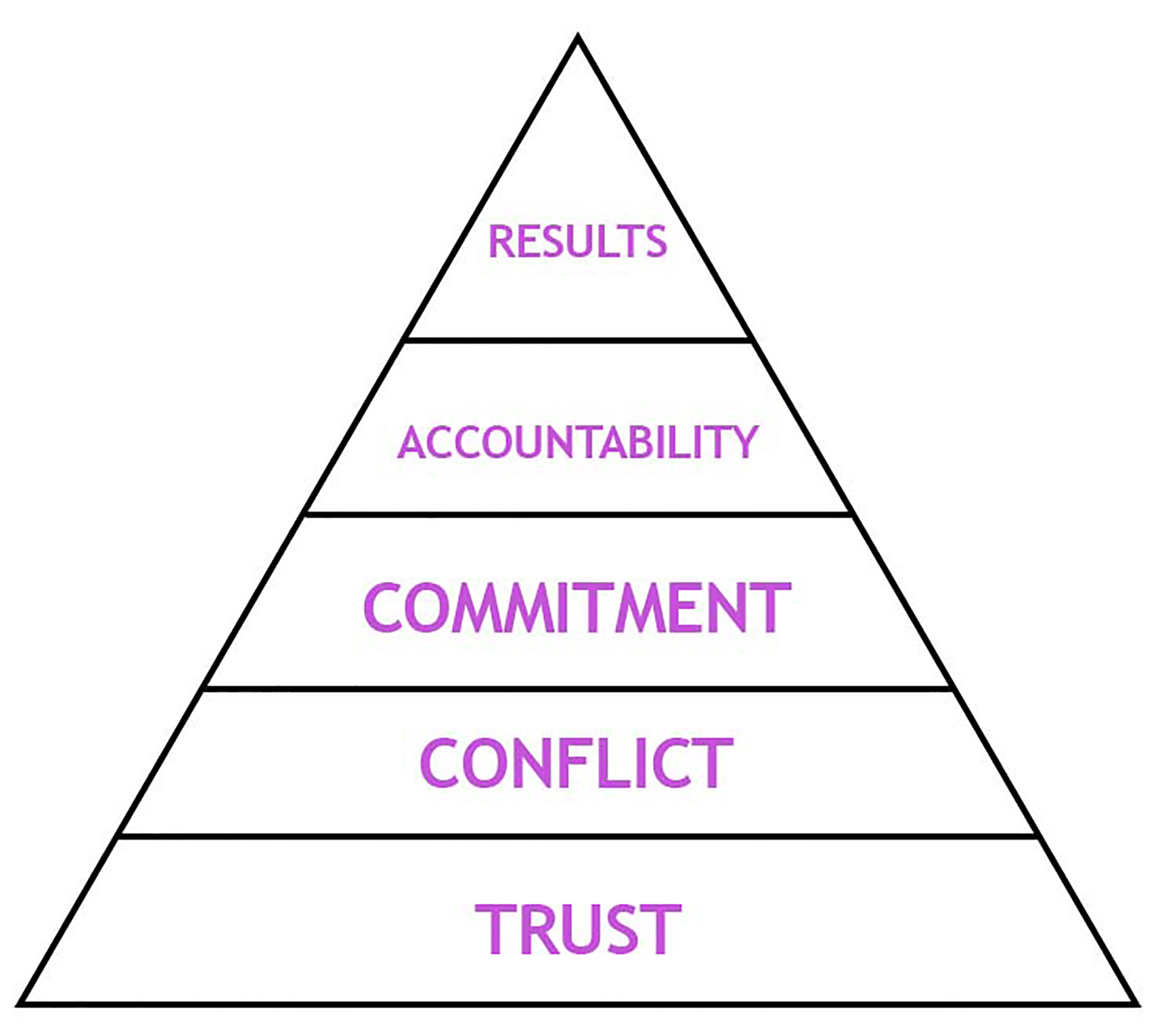Patrick Lencioni’s Theory Explained
.jpg)
In his 2002 book, Patrick Lencioni introduced a framework known as the Lencioni Model, which outlines how workgroups can effectively operate and tackle challenges.
Lencioni’s "The Five Dysfunctions of a Team" serves as a valuable resource for both leaders and team members, focusing on the common hurdles that can impede team performance. He identifies five key dysfunctions that can undermine even the most dedicated teams: lack of trust, fear of conflict, lack of commitment, avoidance of accountability, and inattention to results.
By recognising and addressing these dysfunctions, teams can enhance communication, foster stronger relationships, and achieve improved outcomes. In this article, we'll delve into each of the five dysfunctions, examine their effects on team dynamics, and provide strategies for overcoming them.
Lencioni's model is a teamwork theory that can help develop good leaders and prevent workplace toxicity.
What are the Five Behaviours in Lencioni’s Theory?
At the core of Lencioni’s philosophy is the belief that teamwork is the most crucial factor in a company’s competitiveness. A business might boast cutting-edge facilities and abundant resources, but without a strong, cohesive team, it struggles to operate effectively and compete in the marketplace. Lencioni emphasises that successful teamwork is essential for any organisation aiming to thrive.

Trust
Trust serves as the cornerstone of success, making its emphasis critical in any workplace. It’s fundamental for fostering collaboration and communication. When team members trust one another, they feel more at ease sharing ideas, concerns, and feedback, creating an environment where open dialogue thrives. This not only helps teams identify and address issues effectively but also promotes psychological safety, allowing individuals to take risks and learn from mistakes without fear of judgment. Ultimately, trust is vital for building strong, productive, and resilient teams that can achieve their goals and succeed in the long run.
Conflict
In Patrick Lencioni's "The Five Dysfunctions of a Team," the second dysfunction is the fear of conflict, which he identifies as a significant barrier to team success. When team members shy away from expressing their opinions or engaging in healthy debates, they miss out on valuable opportunities to challenge assumptions, explore new ideas, and develop better solutions. While conflict is often seen as uncomfortable, a strong foundation of trust can turn it into a constructive force. By embracing conflict and fostering a culture that encourages respectful disagreement and constructive criticism, teams can build stronger relationships, enhance communication, and ultimately boost their performance. In essence, with trust in place, what could initially seem like conflict can transform into brainstorming sessions that allow the team to explore diverse viewpoints and ideas.
Commitment
Commitment is essential for any team's success, ensuring that all members are aligned and working toward a common goal. In Patrick Lencioni's "The Five Dysfunctions of a Team," the lack of commitment is identified as the third dysfunction, often stemming from unresolved conflicts or misunderstandings within the group.
When team members aren’t fully committed to the team’s goals or decisions, their motivation to contribute diminishes, and they may even work against the team’s interests. Lencioni emphasizes that “consensus” does not equate to having committed teammates. For instance, when an idea is adopted or discarded during the conflict phase, those who may not fully agree need to grasp why the shift in direction is crucial.
To tackle this dysfunction, teams must ensure that every member understands and agrees on their goals and objectives, along with having a clear sense of their individual roles and responsibilities. By fostering a culture of shared ownership and accountability, teams can enhance commitment and achieve greater success.
Accountability
Accountability can be one of the more challenging aspects to implement in workgroups. In Patrick Lencioni's "The Five Dysfunctions of a Team," the avoidance of accountability is highlighted as the fourth dysfunction, and it can significantly hinder team performance. When team members aren’t held accountable for their actions or results, it can erode trust and commitment, ultimately undermining the team's success. To address this dysfunction, teams must set clear performance expectations and metrics, fostering a culture where everyone feels comfortable holding themselves and their peers responsible for meeting these standards. By nurturing a sense of personal responsibility and ownership, teams can enhance their performance and achieve better outcomes.
Results
In Lencioni's framework, achieving results is the ultimate goal of effective teamwork. Without a focus on results, a team's efforts can easily go to waste, making success unlikely. However, to reach those results, teams must first navigate the four dysfunctions that precede them: lack of trust, fear of conflict, lack of commitment, and avoidance of accountability. By building trust, encouraging healthy conflict, committing to shared goals, and establishing accountability, teams can lay a solid foundation for success. In high-performing teams, individual goals and egos take a backseat to the group's objectives, as members prioritise collective success over personal gain. Ultimately, by focusing on results and collaborating effectively, teams can achieve their aims and drive success in the workplace.
Conclusion to Lencioni's Theory
While Lencioni's model offers valuable insights into managing teams, it's important to recognise that the five dysfunctions are rarely completely resolved after initial implementation. Lencioni himself noted that teams evolve over time due to various factors, such as job changes, maternity leave, or long term illness. When these shifts occur, leaders should revisit the framework, identify any gaps or issues, and work to address them. By doing so, the foundational elements of teamwork will naturally improve, enhancing overall team dynamics and effectiveness.
Looking for some inspiration for a memorable company day out? Check out these exciting ideas for your team that can help strengthen your team dynamics, build trust, and enhance collaboration, aligning perfectly with Lencioni's principles for effective teamwork
Plan your Team Day
We organise 100's of team building events each year